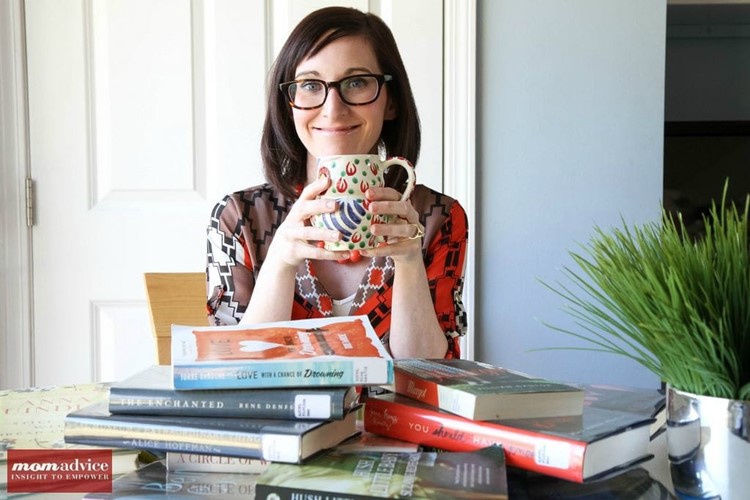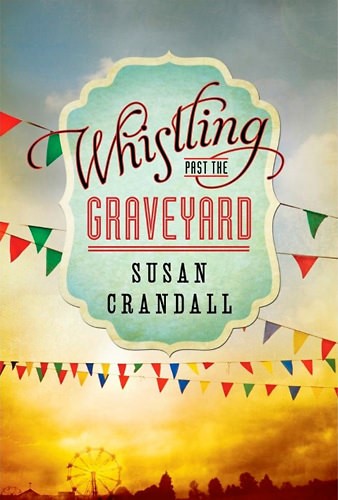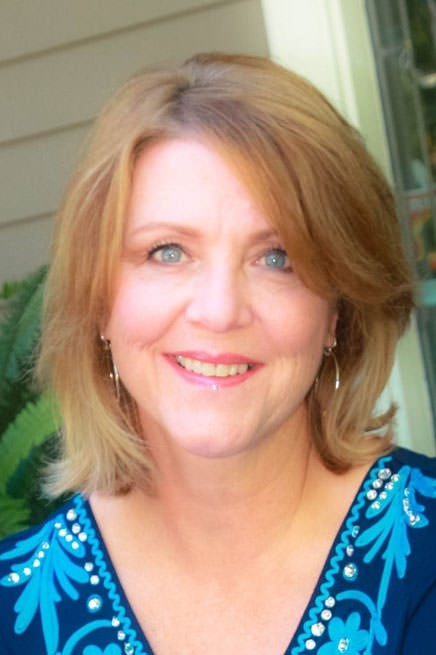
I am so excited to be featuring a new-to-me author that I discovered this month. I read her beautiful book, Whistling Past the Graveyard, in just a couple of short days and absolutely fell in love with it. It was the kind of book that I thought about for many days after. I would say that if you are a fan of, “The Help,” or young narrator’s with lots of spunk, you will want to get this book right away for your summer reading. If you don’t fall in love with these characters, I fear for you. It’s that endearing. As soon as I closed the pages, I did what any smart blogger would do. I emailed Susan and begged her to join me for Sundays With Writers so I could share it with you.

In the summer of 1963, nine-year-old Starla Claudelle runs away from her strict grandmother’s Mississippi home. Starla’s destination is Nashville, where her mother went to become a famous singer, abandoning Starla when she was three. Walking a lonely country road, Starla accepts a ride from Eula, a black woman traveling alone with a white baby. Now, on the road trip that will change her life forever, Starla sees for the first time life as it really is—as she reaches for a dream of how it could one day be.
This book is so beautiful your heart aches. A coming-of-age story about what it means to be family and how the most unlikely people can be a part of that despite all racial and societal barriers. Set in the ’60’s, the spitfire child narrator captured my heart. This story is a perfectly satisfying summer read that I highly recommend you add to your beach bag this summer.
Grab your coffee and let’s chat with Susan Crandall about this amazing tale of Starla Claudelle in her book, Whistling Past the Graveyard.

Writing in the voice of a child is one of those elements of writing that I am always fascinated with. Two books that we have talked about before, Room & The Bear, both used a child narrator and people either loved it or they hated it.
I can’t say I have ever heard a child’s voice captured more perfectly than in this book though. One scene that made me laugh is when Starla has the sex talk with her Dad and she is absolutely traumatized by it.
Do you hang out with a lot of nine-year-old kids or were you thinking about your nine-year-old self when you wrote this?
Thank you for the lovely compliment. Youthful characters are always fun to write, but with Starla as a main narrator, it afforded me many, many hours of reminiscing and amusement. I can’t say I’ve been around more nine-year-olds than most people. I’m the mother of two grown kids. I tapped into many things to give Starla her voice, and one of them was definitely my nine-year-old-self. It was a great trip down memory lane (although let me be clear, I was a rule following child, rarely impulsive, never sassy; for that I tapped into my younger sister).
Also, I have to admit, this character had a very distinct voice from the instant she walked into my mind. Sometimes I felt like I was taking dictation.
In one scene, Starla explains what Whistling Past the Graveyard means. She says, “My daddy says that when you do somethin’ to distract you from your worstest fear, it’s like whistlin’ past the graveyard. You know, making a racket to keep the scaredness and the ghosts away. He says that’s how we get by sometimes. But it’s not weak like hidin’…it’s strong. It means you’re able to go on.”
Have you ever done any whistling past the graveyard in your life?
Who hasn’t? That’s what makes the saying so applicable to many of the characters in this book. As for my version of whistling, I tend to bury myself in projects of various natures, the more brainless and physical the better, yard work, closet cleaning, house painting and the like. (From the looks of my house, I’m going to say that it’s been a while since I’ve needed that kind of distraction.) I can’t say I’ve ever honed in on a singular thing like Eula’s baking.
Plus I think there’s a lot of “whistling” we do as a society as a whole, so we don’t have to face our collective shortcomings.
Reading the scenes of abuse and seeing how broken Eula was were both tough for me. Did you have difficulty writing these scenes, particularly the scenes when Stella is captured?
I definitely had trouble making myself write those parts. But they were necessary to tell the full story, for Starla’s journey of discovery to be complete. When I write a scene, I mentally go to that place and endure it second by second along with my characters. Of course, no scene is completely fleshed out in one pass, so I had to fortify myself to go back there day after day.
One of the most difficult for me to write was when Starla meets her momma. As a mother it went against every instinct I had…that’s how I knew it was right.
Racial tension abounds in this book and there were a few scenes where I had a lump in my throat or had to speed read through to be assured that Eula & Starla would be safe. Did you do a lot of research about the ’60’s and what was happening during this time? What type of preparation did you do to really help us understand how hard it would be for a woman like Eula in the ’60’s?
I did extensive research. I do remember the mid-sixties, but grew up in Indiana, so my experience was much different than if I’d grown up in the South. That’s not to say there weren’t incidences of racism in Indiana that helped me sharpen my view. Fortunately there are plenty of resources from old news footage, documentaries, and I read several first-hand accounts written by African-Americans who lived through segregation in the fifties and sixties.
I think the way to really connect with any era, situation, or setting is through the common thread of our humanity. What would I have felt like in those situations. Of course, Eula’s inner trials were often beyond my imagining. One of the reason’s the entire book is from Starla’s point of view is because I can only say what Eula’s life would have looked like from the outside. I can’t imagine the fear and hardship in enough depth to write it from her perspective.
What do you have in store for us with your next book?
I’m working on a story set in 1923. Three people from very different backgrounds–a teenage orphan of German immigrant farmers, a debutant whose family has lost its fortune and a WW1 veteran pilot–are displaced from their lives and join together to travel the county in a barnstorming act. For those of you unfamiliar, in the early days of aviation after the first world war, many of the pilots took advantage of war surplus trainer planes and made a scrappy living by flying from small town to small town selling rides. They used farm pastures for landing strips, thus the name barnstormer. Flying circuses were formed when several pilots banded together to do daredevil exhibitions. They were quite the rage throughout the early and mid-twenties.
All three of my characters are running from something, each carefully guarding their secrets. They’re bound together by mutual need and yet have conflicting goals. It’s a great ride as we travel throughout the country with them, crossing paths with bootleggers, tycoons, farmers and tent revivalists. But their secrets are always right behind them. When they catch up … well, things get dicey.
It’s tentatively scheduled for release in July 2015
If you could tell anyone to read one book (other than your own) what would that book be?
When I’m asked this question, I always reach way back, looking for a book that has stuck with me so vividly that I can remember the details of the characters very clearly even after a long time. I try to pick something that isn’t a classic, those already stand out and find audiences. I’m a character writer. Suspenseful plots are enjoyable, but it’s the beauty of the character and his/her journey that touches me. So after all that rambling, I always come back to two books, very different genres: Lonesome Dove, by Larry McMurtry and The Stand, by Stephen King. I’m also a fan of Diana Gabaldon’s, Outlander (the first book in the series is my favorite).
You can connect with Susan Crandall on Facebook or on her website! I’m always thankful for these moments with writers and I hope you will pick up this amazing book! You can always connect with me on GoodReads,through our books section of our site, and you can read our entire Sundays With Writers series for more author profiles. Happy reading, friends!
*This post contains affiliate links!
Pin It